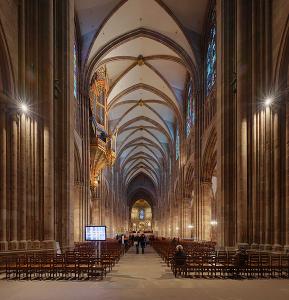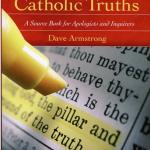Seth Kasten runs the blog called The Confessing Lutheran. and is active on the Scholastic Lutherans YouTube channel. He wrote an article entitled, “A Brief Argument Against the Epistemological Primacy of the Church with Respect to Scripture” (10-3-22). This is my counter-reply. His words will be in blue.
*****
. . . keeping this always in view, that, errors being removed, the purity itself of the Gospel be preserved in the Church; which (Gospel), before promised through the prophets in the holy Scriptures, our Lord Jesus Christ, the Son of God, first promulgated with His own mouth, and then commanded to be preached by His Apostles to every creature, as the fountain of all, both saving truth, and moral discipline . . . (the Synod) following the examples of the orthodox Fathers, receives and venerates with an equal affection of piety, and reverence, all the books both of the Old and of the New Testament–seeing that one God is the author of both . . . as having been dictated, either by Christ’s own word of mouth, or by the Holy Ghost, and preserved in the Catholic Church by a continuous succession. (Decree Concerning the Canonical Scriptures, Fourth Session of the Council of Trent, 1546; my italics)
The Catholic Church “receives” and “preserves” and “venerates” the Bible. It doesn’t claim authority over the Bible or the gospel. It’s two different concepts. One statement by one non-authoritative theologian doesn’t change this fact. Vatican I (1870) and Vatican II (1962-1965) elaborated upon this understanding and made it even more crystal clear that the Catholic Church doesn’t consider itself superior to or “over” the Bible:
These the Church holds to be sacred and canonical; not because, having been carefully composed by mere human industry, they were afterward approved by her authority; not because they contain revelation, with no admixture of error; but because, having been written by the inspiration of the Holy Ghost, they have God for their author, and have been delivered as such to the Church herself. (Vatican I, Dogmatic Constitution on the Catholic Faith, chapter II; emphasis added)
The divinely-revealed realities which are contained and presented in the text of sacred Scripture, have been written down under the inspiration of the Holy Spirit. For Holy Mother Church relying on the faith of the apostolic age, accepts as sacred and canonical the books of the Old and New Testaments, whole and entire, with all their parts, on the grounds that they were written under the inspiration of the Holy Spirit (cf. Jn. 20:31; 2 Tim. 3:16; 2 Pet. 1:19-21; 3:15-16), they have God as their author, and have been handed on as such to the Church herself. (Vatican II, Dogmatic Constitution on Divine Revelation [Dei Verbum], Chapter III, 11; emphasis added)
Likewise, Lutheran Carl E. Braaten wrote eloquently about the relationship of the Bible and the Church: thoughts that Catholics can wholeheartedly accept:
Scripture principle exists only on account of the church and for the sake of the church…The Scripture principle of Reformation theology and its hermeneutical principles make sense only in and with the church . . . The authority of Scripture functions not in separation from the church but only in conjunction with the Spirit-generated fruits in the life of the church, its apostolic confession of faith and its life-giving sacraments of baptism, absolution and the Lord’s Supper. (“The Problem of Authority in the Church,” in: Carl E. Braaten and Robert W. Jenson, editors, The Catholicity of the Reformation, Grand Rapids, Michigan: William B. Eerdmans, 1996, 61-62)
P1.2) The Church accepted the sacred books, approved them, and commended them to posterity.
Conclusion (C)1) The authority of Scripture depends on the Church.
Well, I don’t know who made this argument, but it’s a really bad and fallacious one, because it presupposes the equality of the canon and the Bible itself, which is a false premise.
Refutation (based on Gerhard):
This is a confusion of the material and form of scripture. Those who received the sacred books from Moses, the prophets, evangelists, and apostles and who commended those books to posterity with their testimony were indeed previously in the assembly of the Church. Also, up to that time, the Church, considered formally, was earlier than Scripture as regards the work of writing. But those witnesses of Scripture were converted and became sons of the Church through the Word that Scripture contains. Therefore they were not earlier than Scripture, considered materially, that is, than the Word that is set forth in Scripture. God’s Word is that “incorruptible seed” through which human beings are reborn and become sons of God (James 1:18; 1 Pet. 1:23). The prophets and the apostles preached the same Word previously and later consigned it to writing. Therefore as incongruent as it is to claim that fruit comes before the seed, so absurd is it also to claim that the Church absolutely and simply precedes Scripture, considered materially and with respect to the Word that it contains.
This is perfectly acceptable to Catholics and in accord with what we believe. The Catholic Church affirms that the Catholic “teaching office is not above the word of God, but serves it, teaching only what has been handed on, listening to it devoutly, guarding it scrupulously and explaining it faithfully in accord with a divine commission and with the help of the Holy Spirit . . .” (Vatican II, Dei Verbum, ch. II, 10).
The same document stated that “Easy access to Sacred Scripture should be provided for all the Christian faithful” (ch. 6, 22); “the study of the sacred page is, as it were, the soul of sacred theology” (ch. 6, 24); “all the clergy must hold fast to the Sacred Scriptures through diligent sacred reading and careful study . . . The sacred synod also earnestly and especially urges all the Christian faithful, especially Religious, to learn by frequent reading of the divine Scriptures the ‘excellent knowledge of Jesus Christ’ (Phil. 3:8); “For ignorance of the Scriptures is ignorance of Christ.” (ch. 6, 25); “we may hope for a new stimulus for the life of the Spirit from a growing reverence for the word of God, which ‘lasts forever’ (Is. 40:8; see 1 Peter 1:23-25).” (ch. 6, 26); “the force and power in the word of God is so great that it stands as the support and energy of the Church, the strength of faith for her sons, the food of the soul, the pure and everlasting source of spiritual life” (ch. 6, 21).
That may be, but they are obviously not final and definitive.
Our confessions cite various Biblical books as scriptural; our liturgies use certain books as scripture for the readings, propers, and ordinaries; and we have the famous Luther Bible of course. But because of this leeway, we are not dogmatically tied to proving a specific canon. This is important to this argument as Lutherans do not need to dogmatically prove any particular list of scriptures apart from at least the 58 books mentioned earlier, as we allow of variance on canonical acceptance (and no more than the maximum size mentioned). Lutheranism represents the group that requires the fewest commitments on this matter and also allows for the widest variance making this argument uniquely fitting.
If 58 books are accepted, then there is still dispute on seven New Testament books (that I noted above as being late in acceptance), and the book of Esther, according to Seth’s report as to Lutheranism and the canon. This is unacceptable. Christians must know which books are in the Bible and which are not, and not remain in doubt. But it’s part and parcel of the theological relativism and ecclesiological chaos that we see everywhere we turn in Protestantism.
This is why Church authority on the canon was necessary: because God doesn’t want millions of people following error or being uncertain as to very important matters (what is inspired revelation and what isn’t). Protestants are fine and dandy with this state of affairs. We Catholics are not. And the claim that we are arrogating to the Church authority over the Bible itself remains as false as it ever was.
*
*****
*
*
Photo credit: Strasbourg Cathedral (Alsace, France). At 466 feet, it was the world’s tallest building from 1647 to 1874. It remains the highest extant structure built entirely in the Middle Ages. Photo by David Iliff (2-8-14) [Wikimedia Commons / CC-BY-SA 3.0 license]
*
***
Summary: I reply to a Lutheran, denying that the Catholic Church thinks it is “higher” than Scripture, with documentation from the councils of Trent, Vatican I, and Vatican II.














